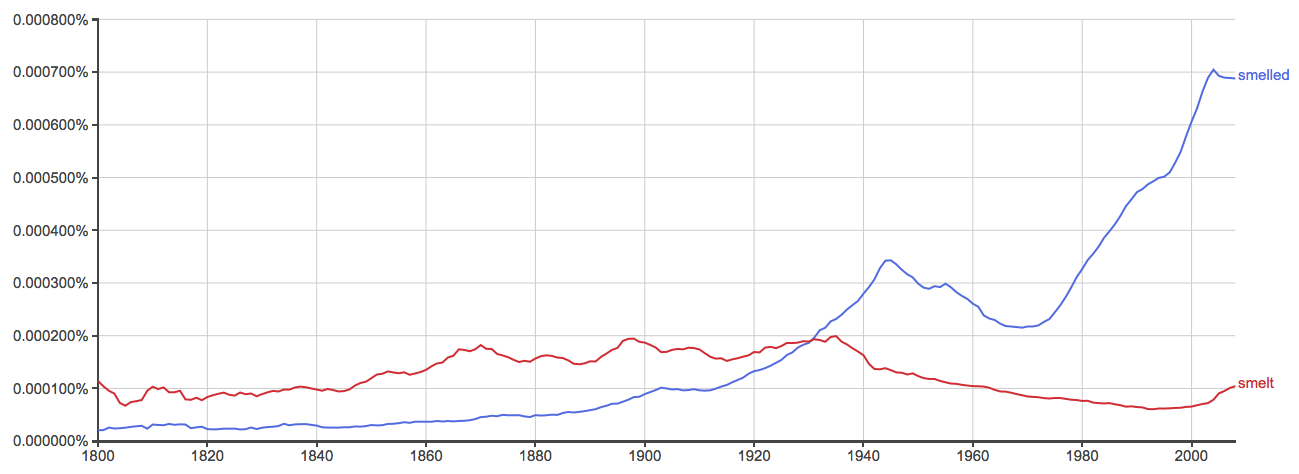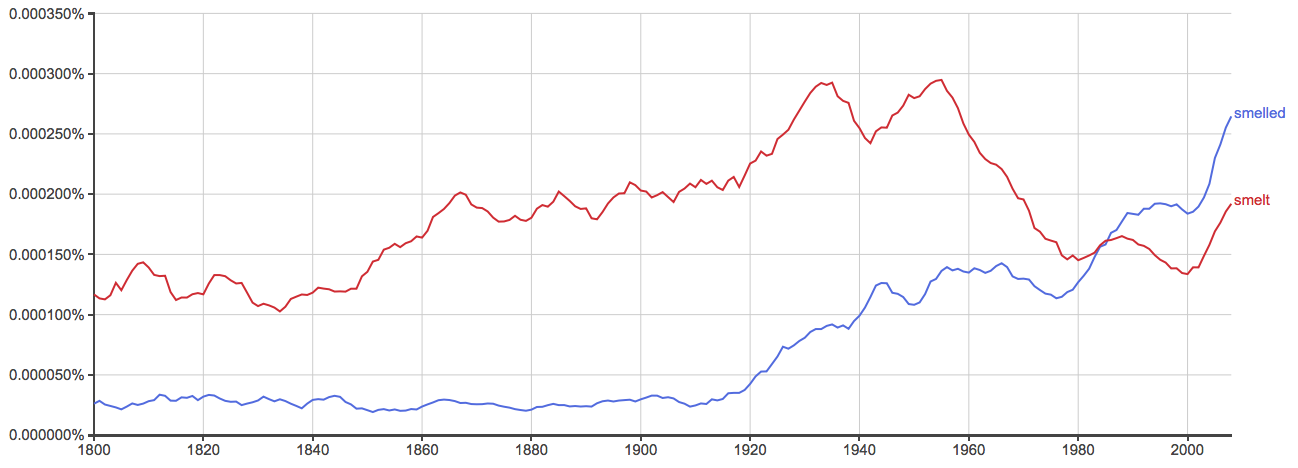Irregular verbs are tricky for the native and nonnative writer alike. Irregular verbs are verbs that don’t take on the typical past tense spelling pattern, and English has a lot of them.
Talk is an example of a regular verb. It changes from present tense to past tense by adding an “ed” to the end of the word.
- I talk.
- I talked.
Drive is an example of an irregular verb. It completely changes when it forms the past tense.
- I drive.
- I drove.
The verb smell actually has both a regular and irregular past tense form.
- I smell. (Present)
- I smelt. (Past)
- I smelled. (Past)
Both of these forms are correct, but they’re not always interchangeable. Sound confusing? Don’t worry. I’ll explain everything you need to know about smelt vs. smelled below.
What is the Difference Between Smelled and Smelt?
The difference between smelled and smelt is largely the same difference between spelled and spelt.
In this post, I will outline the different used of smelled vs. smelt and when it is correct to use each spelling. Plus, at the end, I will give you a helpful trick for remembering each word’s different uses.
When to Use Smelled
 When should I use smelled? Smelled is the preferred past tense spelling of to smell in American English.
When should I use smelled? Smelled is the preferred past tense spelling of to smell in American English.
- The cause of the fire is under investigation. Arson is suspected because investigators said they smelled an accelerant at the scene. –The New York Times
- Residents had begun reporting that their water smelled of petroleum, signaling possible contamination in part of the city’s drinking water supply. –The Washington Post
Smelled is much more common in American and Canadian English, so much so that smelt is generally considered a misspelling.
This preference has been clear for some time in North American English, as the below chart shows.

If you are a writer anywhere in North America, smelled is the correct spelling, as smelt is now exclusively a British English spelling.
When to Use Smelt
When should I use smelt? Smelt is a common past tense spelling of the verb to smell in British English.
- The officers pulled over the vehicle, which was being driven by Stewart who smelt of liquor and was unsteady on his feet. –The Belfast Telegraph
- Coming from Milton Keynes, where there weren’t a great deal of old things, to walk in somewhere that smelt of coffee and vinyl was odd; I was used to shiny new things, with bright lights and cold surfaces. –The Guardian
But, unlike in American English, smelt and smelled occur with roughly the same frequency in British English.

While the above chart is not exhaustive in measuring all uses of smelled vs. smelt (it only covers books), it illustrates that in British English the distance between the two words is much closer than in American English.
In Britain, both forms equally acceptable.
Other Meanings of Smelt
The word smelt does have a few other meanings, both as a noun and verb, that add to the confusion of smelled or smelt.
Smelt as a noun. As a noun, a smelt is a type of fish. A smelt is any of the various small silvery marine, freshwater, and anadromous food dishes of the family Osmeridae, usually found in the Northern Hemisphere.
These fish are common in the Great Lakes and lakes and seas of Northern Europe.
Smelt as a verb. As a verb, to smelt is to extract (metal) from its ore by a process of heating or melting.
- They don’t smelt aluminum at Davenport, but transforming recycled or new aluminum into a finished product still requires a lot of heat. –Popular Mechanics
The past tense of to smelt is smelted.
- I smelt.
- I smelted.
Trick to Remember the Difference
It’s easy to see why there might be confusion on when to use smelled or smelt. Here’s a trick to help you remember when to use each word.
Smelt, as in he smelt the flowers, is commonly used in British English. Smelt and British both have a letter “T” in them.
Summary
Should I use smelt or smelled? The largely depends on who your audience is.
Smelled is the correct spelling in American English.
Smelt and Smelled are both acceptable spellings in British English.
Contents
